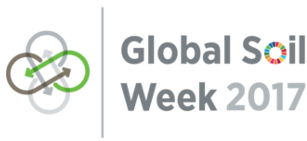![]()
Wednesday, 22 April 2015
Day 4: Visions for the future – an integrated perspective beyond 2015
Organisations
CIAT – International Center for Tropical Agriculture (Kenya)
International Fertilizer Industry Association (France) and Agriculture for Impact Imperial College London (United Kingdom)
IUSS – International Union of Soil Sciences
SoilCares Research (The Netherlands)
World Wide Fund For Nature, Heinrich Böll Foundation and Agrecol (all: Germany)
Presentations
120 second session summary
Please download the Rapporteurs’ Report for this session here.
Ensuring sustainable soil-fertility management practices is one of the major challenges of the twenty-first century. Such practices will be necessary to feed a growing population and maintain life-supporting ecosystem services for all. Soils are being degraded on a large scale and at an alarmingly fast rate; soil fertility is declining and the pressure on this resource is increasing. We need a shift towards sustainable farming concepts that can be applied without degrading the natural resources (soils, land and water) on which our agricultural production and ecosystems depend.
This session will feature a dialogue on sustainable soil management that takes stock of current agronomic and policy research and builds on insights from a GSW 2013 session. We will present a global map of various categories of land quality, based on inherent soil characteristics. The analysis will link the various degrees of soil fertility globally as well as locally. The session will then focus on soil issues in sub-Saharan Africa (SSA), addressing inherent soil fertility constraints in the light of existing institutional frameworks and incentive structures and will derive policy processes needed for transformation towards sustainable development. We will discuss the various approaches towards a balanced and integrated framework for providing organic matter as well as mineral fertilisers in SSA. The goal is to formulate a set of proposals towards a joint paradigm for sustainable soil fertility management, in particular in the context of the current and predicted status of global planetary boundaries.
You may also be interested in the following Lunch Break Forum (LBF) contributions:
≥ LBF-10: Volunteer Soil Doctors in Thailand
≥ LBF-16: Growing smarter together
≥ LBF-24: Effect of clay amendment on water retention in sandy arid soil in Tunisia
Download the session description here.
Programme
09.00
Intro and welcome
CIAT – International Center for Tropical Agriculture (Kenya),
IUSS – International Union of Soil Sciences
09.20
Keynote I: Building soil fertility through rotational farm practices – Sustainable soil fertility practices at landscape level (Patrick Holden, Sustainable Food Trust)
Keynote II: Sustainable intensification and the yield gap debate – (ir)relevance for smallholder farmers in sub-Saharan Africa (Katherine Snyder, CIAT)
In-depth discussion and hard talk: Input and reaction by Barrie Bain (IFA) and Mamo Tekalign (Ministry of Agriculture, Ethiopia), hard talk among all panelists, moderated by Deborah Bossio on joint assumptions and different perspectives of how to achieve sustainable soil fertility management.
10.20
Fishbowl discussion with all speakers and the audience on the approach of integrated soil fertility management and the various aims and assumptions underlying it
HBS – Heinrich Böll Foundation (Germany)
CIAT – International Center for Tropical Agriculture (Kenya)
IFA – International Fertilizer Industry Association (France)
IUSS – International Union of Soil Sciences SoilCares Research (The Netherlands)
WWF – World Wide Fund for Nature (Germany)
11.00
Coffee Break
12.00
World Café – Vision 2050
HBS – Heinrich Böll Foundation (Germany)
CIAT – International Center for Tropical Agriculture (Kenya)
IFA – International Fertilizer Industry Association (France)
IUSS – International Union of Soil Sciences
SoilCares Research (The Netherlands)
WWF – World Wide Fund for Nature (Germany)
12.30
Wrap-up and joint statement
Contact: Hannah Janetschek
